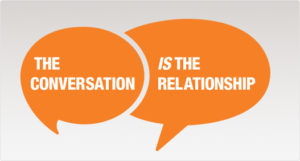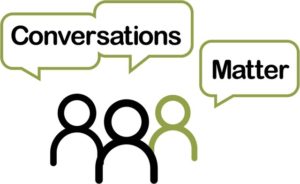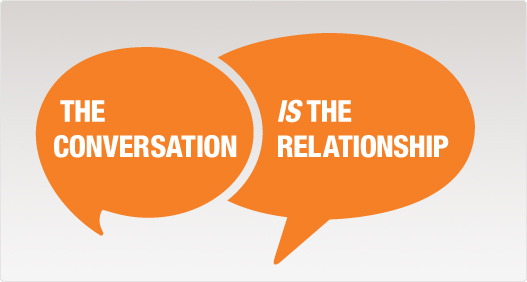NOTE: Today is my penultimate working day of 2017 (Yay!) and I wanted to share some learnings that I’ve found useful in this last quarter of the year. “Conversational Intelligence” by Judith Glazer is a must read, and the following is merely my own takeaway from her stellar work. This was meant to be a LinkedIn post, but all truth is parallel, they say, and the same principles that we can apply in a professional context to improve relationships are applicable in our personal life. So I’m sharing here. Feel free to take and apply whatever you need. Happy New Year!
Dysfunctional organisational culture. Toxic relationships. Self- doubt. Mistrust. Misaligned objectives. Perverse metrics. Silo-ed-approach to business. Misunderstandings. Wasted time. Defensivenes.
All of the above are directly related to the quality of the conversations we have. The culture of an organisation and the ease (or not) of interpersonal relationships do not exist in vacuum. Think about it. The intangible “this is how it is around here” results from how we relate to each other.
 |
| Courtesy Jane Genova |
How Dysfunction Looks
Ever sat in a meeting, listened to the usual suspects pontificate on and on, listen to silence when feedback is solicited, leave the room and see the mini meetings taking place in huddles across the department? Ever wondered why your partner just can’t seem to understand why this is so important to you yet does nothing to change the way they operate? Ever yearned to get into your teenager’s head to understand just how the heck they came to make that decision to carry out that act? Ever stepped back aghast that your friend or colleague took offence to that off-hand remark you made the other day?
Meaning resides in the Listener
The person speaking assumes that what he means to convey is what the person on the other end understands. After all, words have meanings, and when put together in a sentence can only have one meaning, the meaning the speaker ascribes to the sentence. Right? Not so fast.
There is a difference between Intention and Impact. You see, both the speaker and the listener don’t exist in a sterile environment where the only variable are the words being bandied about. There is a context that absolutely determines how something is said and how it is interpreted. What is this context? It comprises a number of factors: past experiences, how the person was raised, personal values, expectations, …and biology. Biology? Yes.
 |
| Courtesy The American Negotiation Institute |
Why don’t they get it?
Uncertainty and fear are the two biggest hindrances to effective communication. They are the filters which have the biggest potential to distort meaning leading to the attributes that kicked off this essay. Where there is ambiguity, our brain naturally and instinctively fills in the gaps.
Simply put, our brains operate at two levels: a more primal, instinctive level where we react to unfamiliar, potentially hostile situations in a particular way, with the sole aim being self-preservation, the old fight or flight response, if you will. Then there’s our higher order brain which is more capable of interrogation, judgement, linking facts, and rational responses. This part of our brain does not operate instinctively, but we can learn how to train it such that we are more mindful and deliberate and intentional in how we converse with those around us.
Judith Glazer in her book “Conversational Intelligence” quite appropriately described what our brain does in the face of this uncertainty as “creating a script and playing a movie” that fills in the blanks in the World According to Us. In the face of ambiguity, our more primitive lower brain kicks in and creates a scenario where we go into protective mode. The result is a chain reaction of distrust which blocks effective communication.
But we can fix it!
Here is how we can, by understanding the biology at work, move beyond an instinctive posture to a more deliberate one aimed at creating constructive conversations:
1. Listen without judgement. Listen. Make the effort to hear what the other person is saying without running them through your personal filters.
2. Ask Discovery type questions. These are not yes or no answer questions. These are more how and why ones. Asking questions aimed at uncovering the real message being conveyed allows you the listener to suspend the judgement mentioned in 1. above and clears the path so that all that remains is What Is Meant to Be Conveyed.
3. If you are the one conveying a message, then you have to be aware that the listener will most likely interpret what you are saying based on his own filters. This will force you to address fears and concerns that you think they have up-front in your messaging, again clearing the way for What Is Meant to Be Conveyed. You should also feel free to ask the listener to tell you what they got from what you were saying. This creates the opportunity to clarify and refine your message.
4. An environment of openness and acceptance are a must for points 1 through 3 to flourish. Easier said than done though, right? What if you are not the one in the position of leadership with the implied authority to create such and environment… is all lost?
No. YOU can contribute to a cleared pathway for effective communication by adopting points 1 and 2 above: listen without judgement and ask discovery type questions. In the absence of an open and accepting environment this could be difficult, but still doable. And slowly, you could see a paradigm shift in the quality of your own relationships with those around you. It’s a start.
As we build our conversational intelligence we’ll see the quality of our conversations evolve along this continuum:
TELL/ASK >>>>>>>ADVOCATE/INQUIRE>>>>>>>>SHARE/DISCOVER
It is when we are operating in the share/discover mode that conversations are most productive and where dysfunction in relationships and culture disappear.
A Personal Commitment to Building Conversational Intelligence
Going forward, let us, wherever we are, regardless of our position of power in the relationship, seek to create a new context, one that minimises fear, doubt, uncertainty and ambiguity. Here are some suggestions as to how we can do this:
Maintain an open posture: be open to new thoughts and ideas and let this inform your body language and choice of words.
Display appreciation: saying thanks and acknowledging good quells fear. And that’s a good thing, right? Because fear distorts meaning and blocks understanding.
Focus on Discovery in the conversation rather than seeking to make your own point.
Practice Empathy and Curiosity: This narrows the gap between expectations and reality, the root of ambiguity and uncertainty.
Here’s to a 2018 where we level up and become better parents, partners, leaders and servants by creating a context where fear and ambiguity are minimized and where sharing and discovery can thrive, and conversations are meaningful and productive.
 |
| Courtesy Wheeler Blogs |





